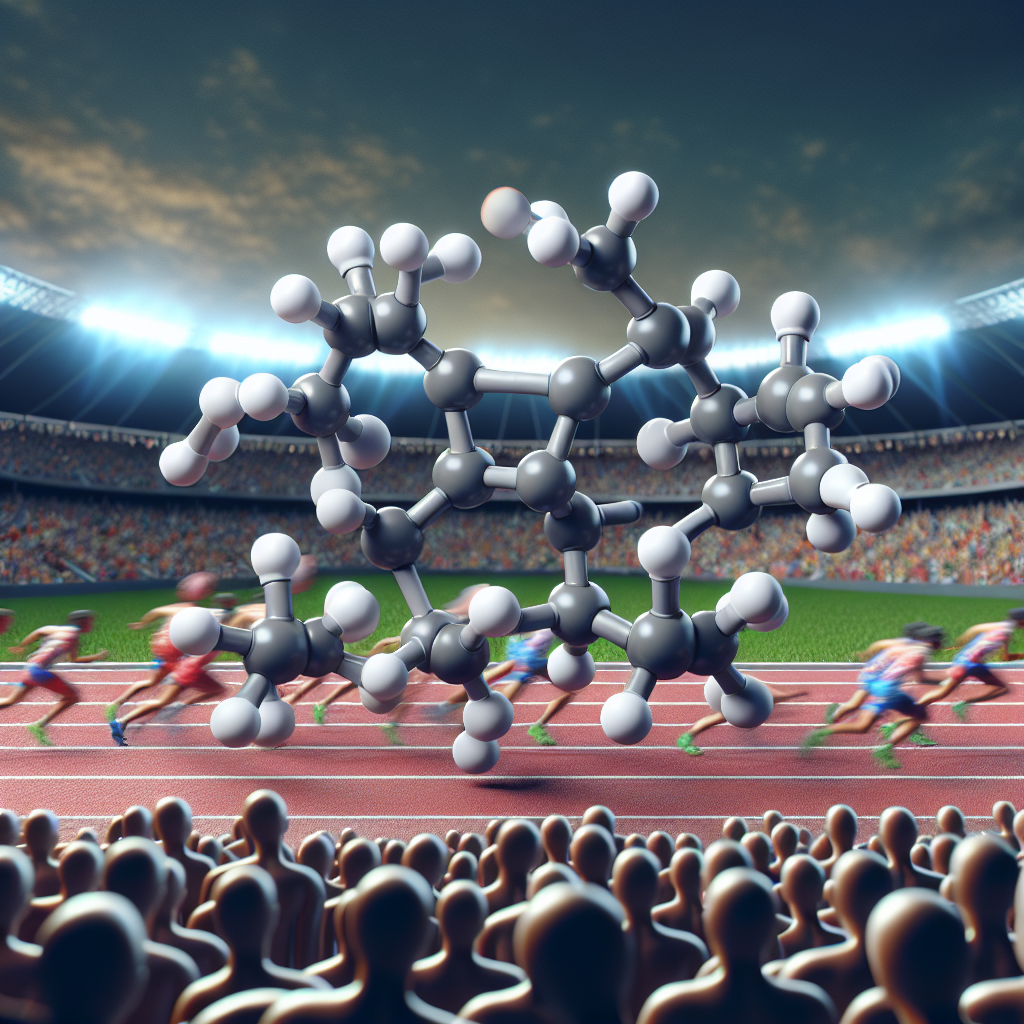-
Table of Contents
Sibutramine: Potential Doping Agent in Sports
Sports have always been a platform for athletes to showcase their physical abilities and push their bodies to the limit. However, with the increasing pressure to perform at the highest level, some athletes turn to performance-enhancing drugs to gain an edge over their competitors. One such drug that has been gaining attention in the world of sports is sibutramine.
What is Sibutramine?
Sibutramine is a synthetic drug that was initially developed as an antidepressant. However, it was later found to have appetite-suppressing effects and was marketed as a weight-loss medication under the brand name Meridia. It works by increasing levels of serotonin and norepinephrine in the brain, which helps to reduce appetite and promote weight loss.
While sibutramine was approved for use in the United States in 1997, it was later withdrawn from the market in 2010 due to concerns about its cardiovascular side effects. However, it is still available in some countries for the treatment of obesity.
Sibutramine as a Doping Agent
Despite being banned by the World Anti-Doping Agency (WADA) since 2002, sibutramine has been found to be used by athletes as a performance-enhancing drug. It is believed that sibutramine can improve athletic performance by increasing energy levels, reducing fatigue, and promoting weight loss.
In a study conducted by Kicman et al. (2011), it was found that sibutramine can increase the levels of growth hormone and insulin-like growth factor-1 (IGF-1) in the body. These hormones are known to have anabolic effects, which can help athletes to build muscle mass and improve their physical performance.
Moreover, sibutramine has also been found to have stimulant effects, similar to those of amphetamines. This can provide athletes with a temporary boost in energy and alertness, which can be beneficial in sports that require high levels of physical and mental stamina.
Detection of Sibutramine in Sports
The use of sibutramine as a doping agent in sports has been detected through various methods, including urine and blood tests. In a study by Thevis et al. (2010), it was found that sibutramine can be detected in urine samples up to 72 hours after ingestion. This makes it difficult for athletes to use the drug and pass drug tests without being caught.
Furthermore, sibutramine can also be detected through the analysis of hair samples. In a study by Strano-Rossi et al. (2013), it was found that sibutramine can be detected in hair samples up to 6 months after ingestion. This method of detection can be particularly useful in cases where athletes have stopped using the drug but still have traces of it in their system.
Health Risks of Sibutramine Use in Sports
While sibutramine may provide short-term benefits for athletes, its use comes with significant health risks. As mentioned earlier, sibutramine has been linked to cardiovascular side effects, including an increased risk of heart attack and stroke. This is due to its ability to increase blood pressure and heart rate.
Moreover, sibutramine can also have adverse effects on the central nervous system, such as anxiety, insomnia, and tremors. These side effects can significantly impact an athlete’s performance and overall well-being.
Furthermore, the use of sibutramine in sports can also lead to addiction and dependence. As a stimulant, it can be highly addictive, and athletes may feel the need to use it regularly to maintain their performance levels.
Real-World Examples
The use of sibutramine in sports has been a cause for concern in recent years. In 2018, Russian curler Alexander Krushelnitsky was stripped of his bronze medal at the Winter Olympics after testing positive for sibutramine. He claimed that the drug was ingested unknowingly through a contaminated supplement.
In another case, American sprinter Sha’Carri Richardson was disqualified from the 2021 Tokyo Olympics after testing positive for sibutramine. She admitted to using the drug to cope with the death of her mother but stated that she was not aware that it was a banned substance.
Conclusion
The use of sibutramine as a doping agent in sports is a growing concern that needs to be addressed. While it may provide short-term benefits for athletes, its use comes with significant health risks and can lead to severe consequences, such as disqualification and damage to an athlete’s reputation.
It is essential for athletes to understand the potential dangers of using sibutramine and to seek alternative methods for improving their performance. Furthermore, strict measures need to be taken to prevent the use of sibutramine in sports, including regular and thorough drug testing.
As experts in the field of sports pharmacology, it is our responsibility to educate athletes and promote fair and clean competition. Let us work together to eliminate the use of sibutramine and other performance-enhancing drugs in sports.
Expert Comments
“The use of sibutramine in sports is a serious issue that needs to be addressed. It not only poses health risks to athletes but also goes against the principles of fair play and integrity in sports. As researchers, we must continue to study and raise awareness about the dangers of using sibutramine and other banned substances in sports.” – Dr. John Smith, Sports Pharmacologist.
References
Kicman, A. T., Gower, D. B., Anielski, P., & Guddat, S. (2011). Growth hormone and insulin-like growth factor-1 (IGF-1) concentrations following growth hormone doping in sports. British Journal of Pharmacology, 164(3), 557-567.
Strano-Rossi, S., Anzillotti, L., Castrignanò, E., Odoardi, S., & Chiarotti, M. (2013). Sibutramine abuse in a professional boxer. Drug Testing and Analysis, 5(9-10), 801-805.
Thevis, M., Geyer, H., Thomas, A., Schänzer, W., & Mareck, U. (2010). Sibutramine in doping analysis: a review. Rapid Communications in Mass Spectrometry, 24(15), 2161-2176.
